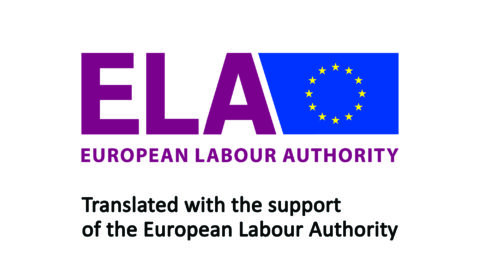General
A Labour Dispute is any kind of dispute between an employer and an employee (or employees) arising from their employment relationship and relating to the application and compliance with the provisions of labour law.
For the resolution of labour disputes, the employee or several employees claiming a common interest, the employer, as well as the relevant trade unions, have the right to request the intervention of the Labour Inspectorate, which then convenes a tripartite meeting (employee, employer and inspector) on a specified date, during which the subject matter of the dispute and the way of its resolution are discussed.
Subject matter of Labour Disputes
The subject matter of labour disputes can be (indicatively):
- arrears of accrued pay and bonuses or other benefits provided for in individual or collective employment contracts, Christmas or Easter bonuses, holiday pay and holiday allowance,
- failure to grant regular or other types of leave (marriage leave, paternity leave, carers leave, dependants leave, monitoring of school performance leave, study leave, leave for trade union duties, special purpose leave, etc.),
- non-payment or payment of reduced severance pay,
- maternity protection, equal treatment of men and women, discrimination on grounds of race, religion, family or social status, etc.,
- issues related to violence and harassment in the workplace.
Labour dispute resolution procedure
The labour dispute resolution procedure starts with the submission of a relevant application by the person concerned to the competent Labour Relations Inspection Department (TEES). The competence of the Department is determined based on the address of the undertaking in which the employee is or was employed and within the limits laid down in Presidential Decree 134/2017 (Government Gazette, Series I, No 168/Α, 06-11-2017).
The application contains the details of the parties and the matters which are the subject of the labour dispute.
The date and time of the tripartite meeting to be held at the offices of the competent TEP are then set, by informing the applicant on the spot and sending the invitation and proof of service to the other party by any appropriate means (post, email, notification to the employer’s account on the Labour Inspectorate’s Portal).
On the day of the hearing at the Department’s premises, in addition to the inspector, the employer and the worker (either in person or with an authorised representative) as well as their legal advisers (if deemed necessary) are present and no provision is made for the presence and examination of other persons as witnesses.
Up to five (5) representatives in total from any interested party, other than the legal advisers, may participate. They may include, at the choice of each party, representatives of the primary trade union or of the secondary or similar professional organisation, or of the labour centre of the region or the General Confederation of Greek Workers (GSEE) on behalf of the employees, as well as representatives of the trade union on behalf of the employer, but always by submitting the relevant legal documents.
In cases of disputes concerning the application of the provisions on maternity protection, the principle of equal treatment between men and women, the principle of equal treatment irrespective of racial or ethnic origin, religious or other beliefs, disability or chronic illness, age, marital or social status, sexual orientation, gender identity or gender characteristics, or issues relating to violence and harassment in the workplace, a representative of the Ombudsman may be present at the hearing of the labour dispute upon advice from the Labour Inspectorate.
Finally, a sign language interpreter from the Hellenic Federation of the Deaf may be present to support a deaf or person with hearing difficulties, as well as a translator to support a foreign person.
The hearing is conducted in person, with the inspector directing the whole process by giving the floor to the parties and ensuring that it runs smoothly. The views of both parties are recorded during the hearing and the relevant documents and records or other evidence presented by each party are examined with a view to resolving the dispute or reaching a compromise between the parties.
If one of the parties is absent without reasonable cause, the Inspector records the views of the party present and if the absence is not justified, a rebuttable presumption of that party’s factual allegations is established.
Next steps
The Inspector, after taking into account the views of the parties and verifying the information submitted, must provide an expert’s opinion on the dispute within one week of the hearing.
In addition, after the end of the hearing, a deadline of no more than one week may be set to resolve the dispute in accordance with the Inspector’s recommendations. In case of compliance, a new report is drawn up and the labour dispute is archived. However, if the deadline expires without any action being taken, the Inspector draws up the above opinion within the deadline of one week.
A copy of the finding drawn up by the Inspector, together with the attached documents, may be obtained upon request by the parties or their legally authorised representatives.
If breaches of labour law are discovered, the inspector has the ability to impose administrative sanctions. If the violations of labour law constitute criminal offences, the inspector submits a lawsuit or indictment to the competent public prosecutor.
Finally, if the complainant wishes to prosecute the employer, he/she may provide the Agency with a solemn declaration stating his/her wish to bring a claim against his/her employer, so that it can be forwarded to the Public Prosecutor.

